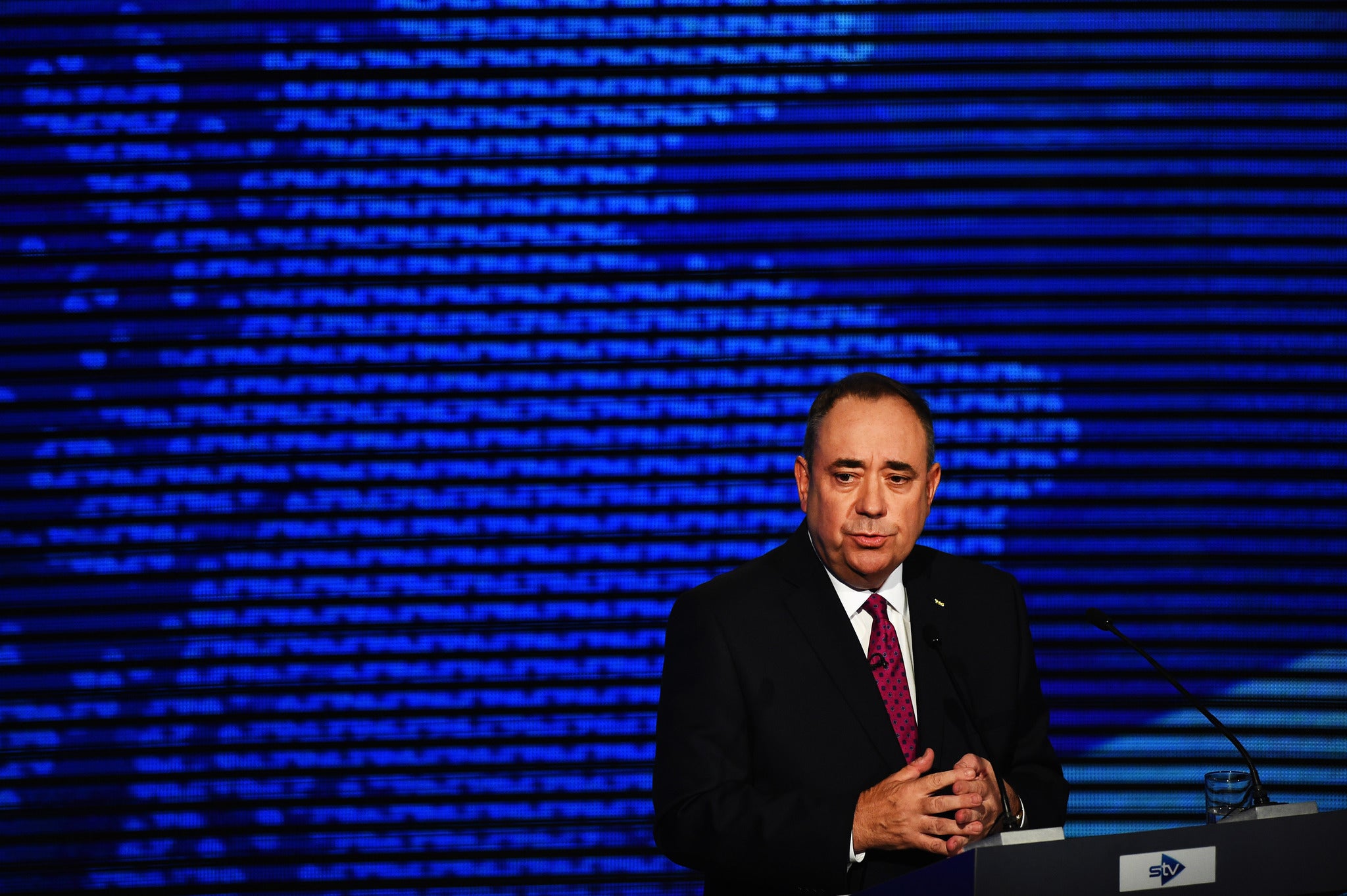Scottish Independence Referendum: Salmond described as 'arrogant, ambitious and dishonest' by Scottish women
In contrast, the survey found that Scots women described Alistair Darling as "intelligent, principled and arrogant"

Your support helps us to tell the story
From reproductive rights to climate change to Big Tech, The Independent is on the ground when the story is developing. Whether it's investigating the financials of Elon Musk's pro-Trump PAC or producing our latest documentary, 'The A Word', which shines a light on the American women fighting for reproductive rights, we know how important it is to parse out the facts from the messaging.
At such a critical moment in US history, we need reporters on the ground. Your donation allows us to keep sending journalists to speak to both sides of the story.
The Independent is trusted by Americans across the entire political spectrum. And unlike many other quality news outlets, we choose not to lock Americans out of our reporting and analysis with paywalls. We believe quality journalism should be available to everyone, paid for by those who can afford it.
Your support makes all the difference.“Arrogant, ambitious and dishonest", were the most common words used to describe Alex Salmond in a recent poll of Scotland's female voters.
The survey, which probed the female view on the impending Scottish independence vote, appears to show a chink in the armour for the First Minister: sceptical women.
According to the poll, by Survation for the Daily Record, 34 per cent of women are planning to vote yes, with 50 per cent a definitive no and 16 per cent remaining undecided.
Mr Salmond’s leadership style concerned some female respondents, saying that his presence would make them more likely to vote no in the upcoming 18 September referendum.
However, adjectives given by the group for the Chairman of Better Together, Alistair Darling, were “intelligent, principled and arrogant”.
Reasons that the female sample group were more inclined to vote no include currency worries and secondly, the belief that the Scottish economy would flounder as an independent country.
As suggested by the Daily Record, a female leader of the Yes campaign could have done wonders, with Deputy First Minister Nicola Sturgeon considered to be “ambitious, intelligent and strong”.
A top reason to vote yes was the nation being able to invest in and control its reserves of natural resources in the North Sea.
“We presented the 1,000 Scots women in this poll with seven key Yes campaign messages and asked respondents to pick the two they found most convincing,” Survation Chief Executive Damian Lyons Lowe said.
“46 per cent of these women told us that none of these reasons to vote Yes were convincing, including 13 per cent of those who voted for the SNP in 2011.
“As the referendum moves closer, the Yes campaign have an uphill struggle to win over the support of women, who – as our poll shows –remain much more sceptical than men over the independence question.”
Earlier this month Mr Salmond was revealed in a similar poll to display a “blokeish attitude” that puts female voters off.
Gail Lythgoe, Campaign Organiser for Yes Scotland, said that a yes vote would provide women with “substantive societal change”.
“As women go to the polls, they’ll be faced with two choices for Scotland’s future. One of continued uncertainty that will come with increased Westminster cuts, cuts that would see Scotland’s budget slashed and our valued public services seriously strained and damaged.
“The other path with Yes will safeguard the gains of the Scottish Parliament such as free personal care and the ending of prescription charges.”
However, a Labour politician disagrees, saying today that public services in Scotland would be subjected to greater cuts than during Margaret Thatcher’s tenure.
Lord Reid, the former Scottish secretary, said Mr Salmond “speaks with the confidence of a man blinded by his ambitions,” he said.
“We got rid of the divine right of kings several centuries ago - we're not about to replace it with the divine right of the first minister.
“I passionately believe that it's in the best interests of Scots to stay in the UK.”
He said that Scotland would have to face £6billion worth of cuts in the first few years following independence.
Join our commenting forum
Join thought-provoking conversations, follow other Independent readers and see their replies
Comments